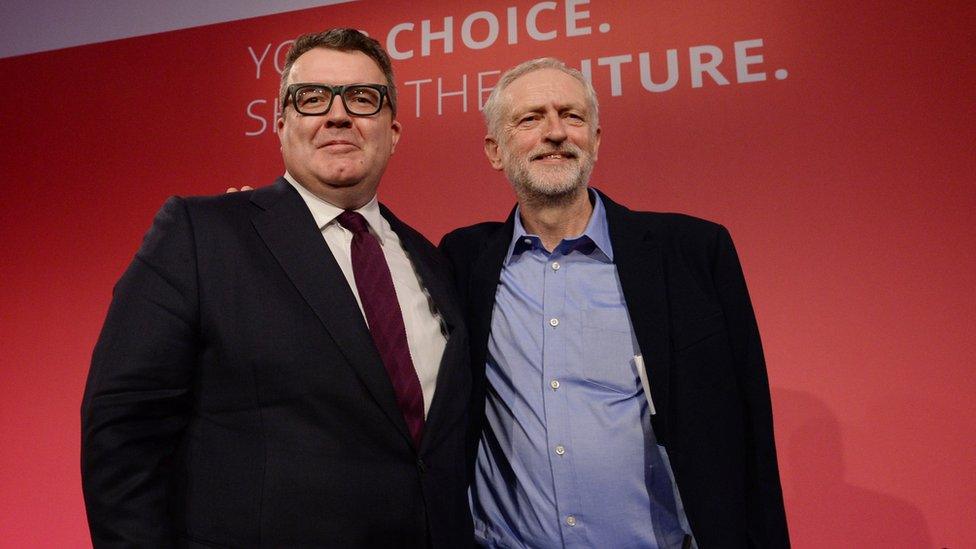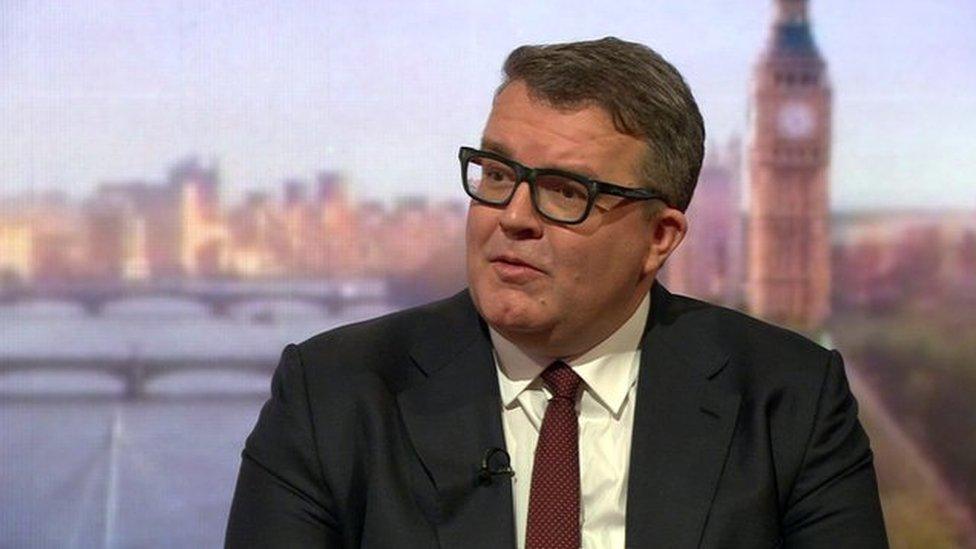How can Jeremy Corbyn's Labour regain Middle England?
- Published
- comments

Tom Watson has called on Labour MPs to "respect the mandate" Jeremy Corbyn has
You don't have to be a muck-raking journalist looking for trouble to find rancour and dissent in the ranks of Jeremy Corbyn's Labour Party. It comes more than half way out to meet you. "It's mayhem," declared one former Blairite minister, without me even having to ask.
And on last week's Sunday Politics, (BBC One, 20 September 2015) under characteristically forensic questioning by Andrew Neil, the shadow justice secretary Lord Falconer accepted no fewer than seven important policy areas where he disagreed with Jeremy Corbyn. No less controversially, he also acknowledged that he remains a close friend of his one-time flat mate Tony Blair, even as Mr Corbyn contemplates a Labour apology for the Iraq invasion.
It was against this background that the party's new deputy leader, the West Bromwich East MP Tom Watson, went on BBC Radio 4's Today programme saying: "I would just say to those MPs that are saying things on the record and off the record, 'please respect the mandate he has been given. Give him a bit of space and time to lay out his stall'. We have a party conference next week."
Mr Watson has a reputation as something of a bruiser, so these words will be interpreted as both a threat and promise. If he is to succeed in his organisational and campaigning mission to hold the party together, the role of party peacemaker cannot be entirely one of sweetness and light.
What's more, Mr Watson may have some self-denying ordinances of his own to observe.

Tom Watson says he wants Labour to become more business-friendly
When I interviewed him at the start of his deputy leadership campaign, his principal message was that if he won he would want Labour to become more business-friendly; "more entrepreneurial", as he put it.
In contrast, Jeremy Corbyn and his shadow chancellor John McDonnell appear to have a way to go yet if they are to reposition themselves as champions of commerce and free enterprise.
But Mr Watson clearly had more than half an eye on all those small and medium-sized businesses which are a feature of the economic landscape, and thus the politics, of our part of the country. Gritty, mid-sized, industrial towns like Burton-on-Trent, Cannock, Halesowen, Nuneaton, Redditch and Telford, where Labour left their high water mark in three general elections, have been won back by the Conservatives. With Jeremy Corbyn's victory in the leadership election, New Labour is officially dead.
But with 98 fewer seats than the Conservatives, it is to these constituencies in what we once called Middle England that Labour must look yet again if Tom Watson is to fulfil his campaigning and organisational mission to make his party electable again.
If political commentators, including the aforementioned Andrew Neil, are correct about "Labour's lurch to the left", the danger for the party is that it will pile up more and more votes not where it needs them most, but where it needs them least.
Tom Watson and the Tories' general election strategist Lynton Crosby probably don't agree about much, though their "take no prisoners" approach to campaign management gives them something in common whether they like it or not.
What they also both know is that the party that wins power is the one that ventures convincingly beyond its electoral 'comfort zone'.